Abstract:
Educational computer-based competition environments need to be designed with a set of features that enhance the learning process. Although recently some frameworks for th...Show MoreMetadata
Abstract:
Educational computer-based competition environments need to be designed with a set of features that enhance the learning process. Although recently some frameworks for the design of educational computer-based systems (e.g., educational games) have been proposed, they do not focus on the details of the competition. Therefore, the design of educational computer-based competition environments is still an open issue. We propose the 4NESS framework for the design of such competition environments. This framework classifies the competition features into four dimensions: easiness, fairness, awareness, and adaptiveness. We designed the ISCARE educational computer-based competition environment implementing these four dimensions to evaluate and validate some included features for competition, and conducted experiments during three consecutive years. Students considered the computer-based competition environment with the proposed features, including a modification of the Swiss system, to be very easy to use, fair for pairing students, moderately fair for calculating scores, with good awareness of their state during the competition and that of their peers, and with contents of appropriate level, especially for the group working with adaptive contents. Adaptation of contents made students increase their learning gains in 0.5 sigmas during the competition. Pairings were seen as with students of similar levels. And final scores were moderately fair: while the order tends to be similar as compared to the results in the post-test, students grades with high performance tend to be lower in the competition environment.
Published in: IEEE Transactions on Learning Technologies ( Volume: 11, Issue: 4, 01 Oct.-Dec. 2018)
Funding Agency:
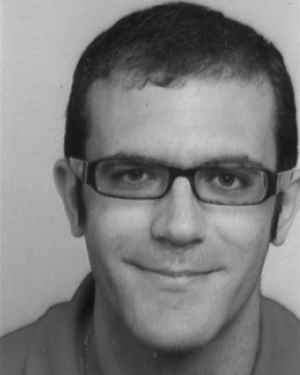
Department of Telematics Engineering, Universidad Carlos III de Madrid, Legans (Madrid), Spain
Pedro J. Muoz-Merino received the PhD degree in telematics engineering from the Universidad Carlos III de Madrid. He is a lecturer and researcher with the Universidad Carlos III de Madrid, where he is the director of the master in telematics engineering. He received the acreditation in May 2012 as associate professor by the ANECA agency from the Spanish Ministry of Education. He has received several awards...Show More
Pedro J. Muoz-Merino received the PhD degree in telematics engineering from the Universidad Carlos III de Madrid. He is a lecturer and researcher with the Universidad Carlos III de Madrid, where he is the director of the master in telematics engineering. He received the acreditation in May 2012 as associate professor by the ANECA agency from the Spanish Ministry of Education. He has received several awards...View more
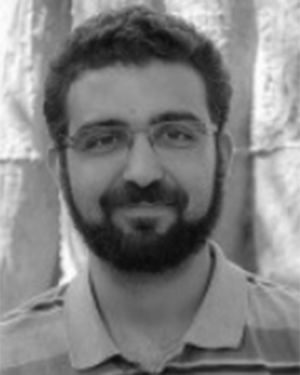
Department of Telematics Engineering, Universidad Carlos III de Madrid, Legans (Madrid), Spain
Carlos Alario-Hoyos received the MS degree in telecommunication engineering and the PhD degree in information and communication technologies from Universidad of Valladolid, Spain, in 2007 and 2012 respectively. He is a visiting associate professor in the Department of Telematics Engineering, the Universidad Carlos III de Madrid. His skills and experience include research and development in MOOCs, social ne...Show More
Carlos Alario-Hoyos received the MS degree in telecommunication engineering and the PhD degree in information and communication technologies from Universidad of Valladolid, Spain, in 2007 and 2012 respectively. He is a visiting associate professor in the Department of Telematics Engineering, the Universidad Carlos III de Madrid. His skills and experience include research and development in MOOCs, social ne...View more
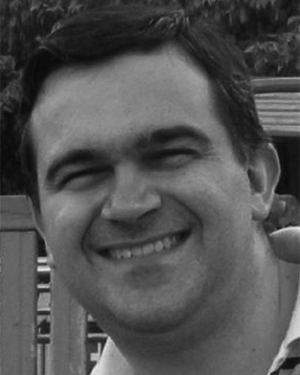
Department of Telematics Engineering, Universidad Carlos III de Madrid, Legans (Madrid), Spain
Mario Muoz-Organero received the MSc degree in telecommunications engineering from the Polytechnic University of Catalonia, Barcelona, Spain, in 1996, and the PhD degree in telecommunications engineering from the Universidad Carlos III de Madrid, Leganes, Spain, in 2004. He is a professor of telematics engineering with the Universidad Carlos III de Madrid. He has also more than four years of experience wor...Show More
Mario Muoz-Organero received the MSc degree in telecommunications engineering from the Polytechnic University of Catalonia, Barcelona, Spain, in 1996, and the PhD degree in telecommunications engineering from the Universidad Carlos III de Madrid, Leganes, Spain, in 2004. He is a professor of telematics engineering with the Universidad Carlos III de Madrid. He has also more than four years of experience wor...View more
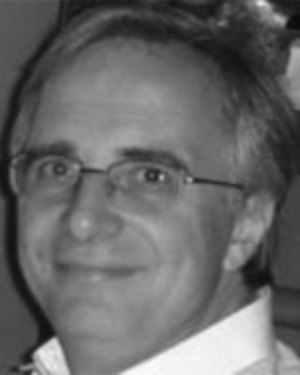
Department of Telematics Engineering, Universidad Carlos III de Madrid, Legans (Madrid), Spain
Carlos Delgado Kloos received the PhD degree in computer science from the Technische Universitat Munchen and in telecommunications engineering from the Universidad Politecnica deMadrid. He is full professor of telematics engineering with the Universidad Carlos III de Madrid, where he is the director of the GAST research group, director of the UNESCO Chair on Scalable Digital Education for All, and vicepres...Show More
Carlos Delgado Kloos received the PhD degree in computer science from the Technische Universitat Munchen and in telecommunications engineering from the Universidad Politecnica deMadrid. He is full professor of telematics engineering with the Universidad Carlos III de Madrid, where he is the director of the GAST research group, director of the UNESCO Chair on Scalable Digital Education for All, and vicepres...View more
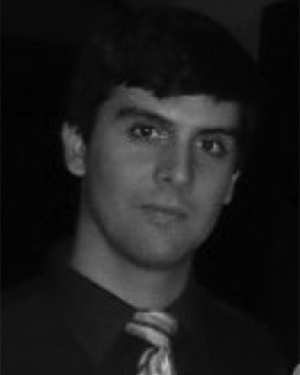
Department of Telematics Engineering, Universidad Carlos III de Madrid, Legans (Madrid), Spain
Manuel Fernndez Molina is a computer science engineer with more than 7 years of experience in the development and management of solutions and projects related to the Information Technologies.
Manuel Fernndez Molina is a computer science engineer with more than 7 years of experience in the development and management of solutions and projects related to the Information Technologies.View more

Department of Telematics Engineering, Universidad Carlos III de Madrid, Legans (Madrid), Spain
Pedro J. Muoz-Merino received the PhD degree in telematics engineering from the Universidad Carlos III de Madrid. He is a lecturer and researcher with the Universidad Carlos III de Madrid, where he is the director of the master in telematics engineering. He received the acreditation in May 2012 as associate professor by the ANECA agency from the Spanish Ministry of Education. He has received several awards for his work on educational technologies. He is author of more than 100 scientific publications and has participated in more than 30 research projects, coordinating some of them. His skills and experience include research and development in learning analytics, educational data mining, evaluation of learning experiences, user studies, and gamification or Intelligent Tutoring Systems. He is a senior member of the IEEE.
Pedro J. Muoz-Merino received the PhD degree in telematics engineering from the Universidad Carlos III de Madrid. He is a lecturer and researcher with the Universidad Carlos III de Madrid, where he is the director of the master in telematics engineering. He received the acreditation in May 2012 as associate professor by the ANECA agency from the Spanish Ministry of Education. He has received several awards for his work on educational technologies. He is author of more than 100 scientific publications and has participated in more than 30 research projects, coordinating some of them. His skills and experience include research and development in learning analytics, educational data mining, evaluation of learning experiences, user studies, and gamification or Intelligent Tutoring Systems. He is a senior member of the IEEE.View more

Department of Telematics Engineering, Universidad Carlos III de Madrid, Legans (Madrid), Spain
Carlos Alario-Hoyos received the MS degree in telecommunication engineering and the PhD degree in information and communication technologies from Universidad of Valladolid, Spain, in 2007 and 2012 respectively. He is a visiting associate professor in the Department of Telematics Engineering, the Universidad Carlos III de Madrid. His skills and experience include research and development in MOOCs, social networks, collaborative learning, and evaluation of learning experiences, among others.
Carlos Alario-Hoyos received the MS degree in telecommunication engineering and the PhD degree in information and communication technologies from Universidad of Valladolid, Spain, in 2007 and 2012 respectively. He is a visiting associate professor in the Department of Telematics Engineering, the Universidad Carlos III de Madrid. His skills and experience include research and development in MOOCs, social networks, collaborative learning, and evaluation of learning experiences, among others.View more

Department of Telematics Engineering, Universidad Carlos III de Madrid, Legans (Madrid), Spain
Mario Muoz-Organero received the MSc degree in telecommunications engineering from the Polytechnic University of Catalonia, Barcelona, Spain, in 1996, and the PhD degree in telecommunications engineering from the Universidad Carlos III de Madrid, Leganes, Spain, in 2004. He is a professor of telematics engineering with the Universidad Carlos III de Madrid. He has also more than four years of experience working for the telecommunications industry in companies such as Telefonica R&D and Lucent Technologies, both in Madrid, Spain. He has participated in several European-funded projects such as E-LANE and Spanish-funded projects such as MOSAIC learning, Learn3 and OSAMI. He has been the lead researcher of the Spanish-funded HERMES, ARTEMISA, HAUS, COMINN, REMEDISS and IRENE projects. He was also the IP of the GEEWHEZ EU-FP7 project and is currently an MC member of TU1305 EU funded COST action about social networks and travel behavior.
Mario Muoz-Organero received the MSc degree in telecommunications engineering from the Polytechnic University of Catalonia, Barcelona, Spain, in 1996, and the PhD degree in telecommunications engineering from the Universidad Carlos III de Madrid, Leganes, Spain, in 2004. He is a professor of telematics engineering with the Universidad Carlos III de Madrid. He has also more than four years of experience working for the telecommunications industry in companies such as Telefonica R&D and Lucent Technologies, both in Madrid, Spain. He has participated in several European-funded projects such as E-LANE and Spanish-funded projects such as MOSAIC learning, Learn3 and OSAMI. He has been the lead researcher of the Spanish-funded HERMES, ARTEMISA, HAUS, COMINN, REMEDISS and IRENE projects. He was also the IP of the GEEWHEZ EU-FP7 project and is currently an MC member of TU1305 EU funded COST action about social networks and travel behavior.View more

Department of Telematics Engineering, Universidad Carlos III de Madrid, Legans (Madrid), Spain
Carlos Delgado Kloos received the PhD degree in computer science from the Technische Universitat Munchen and in telecommunications engineering from the Universidad Politecnica deMadrid. He is full professor of telematics engineering with the Universidad Carlos III de Madrid, where he is the director of the GAST research group, director of the UNESCO Chair on Scalable Digital Education for All, and vicepresident for Strategy and Digital Education. He is also the coordinator of the eMadrid research network on educational technology in the Region of Madrid. He is the Spanish representative at IFIP TC3 on Education. He is a senior member of the IEEE.
Carlos Delgado Kloos received the PhD degree in computer science from the Technische Universitat Munchen and in telecommunications engineering from the Universidad Politecnica deMadrid. He is full professor of telematics engineering with the Universidad Carlos III de Madrid, where he is the director of the GAST research group, director of the UNESCO Chair on Scalable Digital Education for All, and vicepresident for Strategy and Digital Education. He is also the coordinator of the eMadrid research network on educational technology in the Region of Madrid. He is the Spanish representative at IFIP TC3 on Education. He is a senior member of the IEEE.View more

Department of Telematics Engineering, Universidad Carlos III de Madrid, Legans (Madrid), Spain
Manuel Fernndez Molina is a computer science engineer with more than 7 years of experience in the development and management of solutions and projects related to the Information Technologies.
Manuel Fernndez Molina is a computer science engineer with more than 7 years of experience in the development and management of solutions and projects related to the Information Technologies.View more


